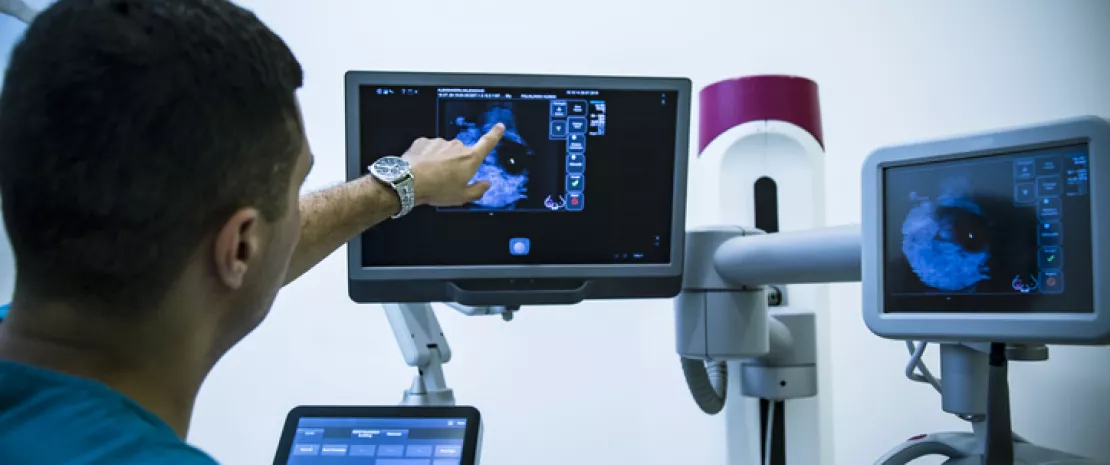Breast cancer: efficacy of immunotherapy conditioned by the gut microbiota?
A recent study published in Cancer Research suggests that the gut microbiota affects responses to immunotherapy in HER2-positive breast cancer. How so? Via local and systemic modulation of the immune system.
Lay public section
Find here your dedicated section
Sources
This article is based on scientific information

About this article
Trastuzumab is the first therapeutic option for women with HER2-positive breast cancer and works by blocking the HER2 receptor. Recent studies have shown that it also has immunomodulatory properties. Although effective against HER2-positive breast cancer, a large number of patients present or develop resistance to this treatment. To try to understand this, the authors of the study focused on the gut microbiota, which has been implicated in the efficacy of both chemotherapy and immunotherapy in other types of cancer via the modulation of host immunity. The study involved experimental models and 24 women with HER2-positive breast cancer.
Efficacy mediated by the microbiota...
First the researchers demonstrated in murine models that the efficacy of the treatment was influenced by the gut microbiota. Mice exposed to antibiotics–either directly or via a fecal microbiota transplant from mice that had received antibiotic treatment–saw the complete suppression of trastuzumab’s tumor growth inhibition effect. At the same time, antibiotic exposure not only led to changes in the tumor immune microenvironment, but also altered the gut microbiota. More precisely, the study showed that the modification of the gut microbiota affected intestinal mucosal immunity and systemic cytokine circulation (impaired recruitment of CD4+ T cells and GZMB+ cells in tumors). For the authors, all of this ties in: alterations to the gut microbiota modify the tumor immune microenvironment, which in turn reduces the efficacy of treatment.
...with confirmation in patients with HER2-positive breast cancer
The study subsequently focused on 24 patients with HER2-positive breast cancer treated with trastuzumab. An analysis of their gut microbiota revealed a lower α-diversity and a lower abundance of certain bacteria in nonresponsive patients (NR) compared to responsive patients (R), similar to antibiotic-treated mice. In addition, the transplant of fecal microbiota from R and NR patients into mice resulted in the same response to trastuzumab observed in the patients. Lastly, fecal microbiota β-diversity distinguished patients according to their response to treatment, independently of tumor intrinsic subtype. For the authors, the direct involvement of the gut microbiota offers promising therapeutic strategies involving the manipulation of gut bacteria to improve the efficacy of anti-HER2 therapy. Furthermore, it presents a potential biomarker for treatment response.







